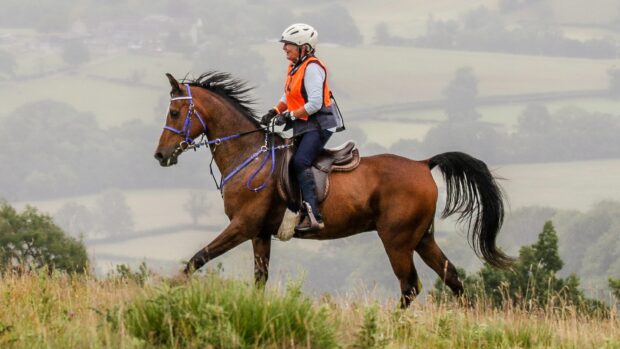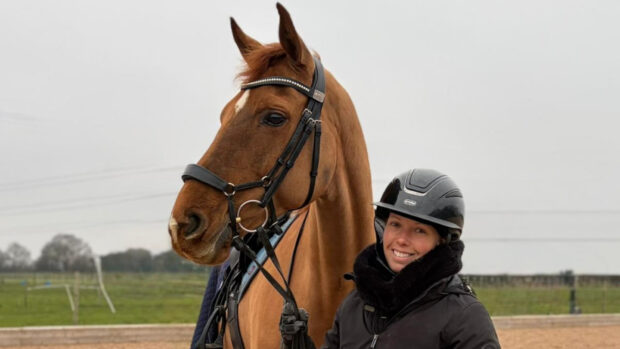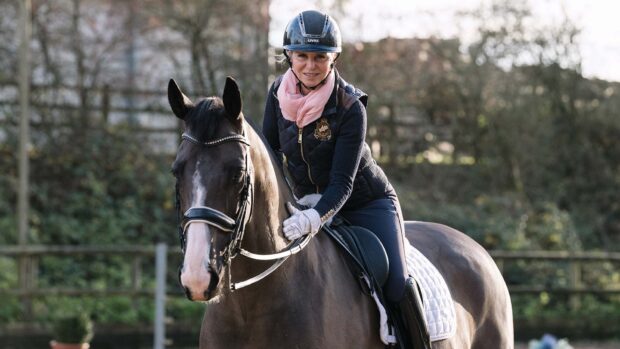“DUMBING down” cross-country is not the answer for the future of eventing, it has been agreed – but riders need to take responsibility for their preparation and discussions are needed across the board to improve safety.
Questions have been raised around horse and rider preparation and qualification for the upper levels, after a number of falls at events including Badminton and Bramham.
Following Bramham, the event’s course-designer Ian Stark shared concerns around the vulnerability of the sport – and which direction it should go in the future.
“I think the sport has got a lot of thinking to do and I’m not the right person to say what way it should go. There’s a need to try to standardise and make sure horses and riders are ready for the level,” he said, adding that he believes levels should be progressive and provide an education, from advanced to CCI4*-S to CCI4*L.
“I need to go away and think about things. If I need to make things easier, I need to decide whether I’m comfortable doing that and helping the sport be dumbed down.”
Before Badminton, Piggy March spoke of the need for sufficient cross-country preparation for the big three-day events in her H&H column. Following Bramham, she told H&H that Ian’s course was “brilliant” and “the sort of course it should be”, but she shares his concerns for the sport’s future, describing it as “worrying times”.
Piggy said Covid had put the sport in some “negative situations” and the loss of a number of events over the years, including the likes of Belton, means that some combinations are not getting the exposure they need to “proper” cross-country courses.
“I said in my column that we needed rider frighteners; it’s not that we want to be riding at horrible fences, but it’s educating horses on the way up to experience some bigger ditches or beefier timber and teaching your horse to stay brave,” she said.
“At the moment, I think we’re at a stage where maybe not all combinations are quite ready or haven’t been exposed to serious competitions. The top end of our sport is becoming easier to qualify for and it’s been a bit of an ongoing thought for the last few years. Obviously we’re trying to keep a clean and safe sport, but it doesn’t necessarily mean it has to be made easier.”
Piggy added that riders need to take responsibility in producing and educating their horses.
“I think more probably needs to be done in terms of being realistic on what events are ‘proper qualifications’ in terms of standard, and when to move up a level. We don’t need more qualifications, just the right ones that educate horses and riders to prepare them for the next level. We’re obviously losing some events and we need to look at whether it’s down to financial difficulty or a new era of riders just going to places that are easier,” she said.
“Some of the old-fashioned courses maybe don’t get as much support from the riders as they used to, but looking back, many top-level horses got produced and ran various times at a lot of these old-fashioned events.
“I don’t know whether people are getting very protective about records or reputation and so go for easier options. It’s knowing which event we’re preparing for and being realistic about how we qualified and if our horse is ready for this.”\
In the public eye
Pippa Funnell spoke last year about her concerns around “dumbing down the sport” and the importance of events such as Chatsworth, Gatcombe and Bramham for preparing riders for five-stars .
Pippa did not have a horse entered for Bramham, but walked the course with some of her Wesko Equestrian Foundation pupils. She told H&H she was in support of the track, and agreed with many of Ian’s comments and concerns.
“If Bramham and other CCI4*-Ls are made too easy, it opens the door for far more combinations who are not experienced enough or capable of qualifying for five-star level,” she said. “There is a strong FEI qualifying system, but horses and riders need tracks that suitably prepare them for the next level. A lot of people think if they’ve got their qualification, they’re ready to step up and so often they’re not,” she said.
“But that’s where it’s the rider and trainer’s responsibility to say, ‘Yes, we’re ready’ or ‘No, we need more experience’; we need to be honst and ask are we, and more importantly our horses, capable.”
Pippa, who described herself as an “old fart, like Ian”, believes the old long format, with steeplechase and roads and tracks, provided a good education for horse and rider, particularly about riding soft brush and speed, and teaching that there are no quick ways to get horses fit. She believes some riders take short cuts or do not understand the importance of fitness, which is vital for safety.
“People need to learn to ride on different terrains, keeping a horse on its feet and keeping them balanced down hills and through the woods – but they can’t learn that doing arena cross-country schooling or on very flat courses. These courses have a place in the sport, but I think people mustn’t try to think of them as easy routes to get qualified. There mustn’t be an easy route,” she said.
“Some riders are absolutely natural and very good, but as we know, eventing is a risk sport and for the sake of its future, people have got to analyse their rounds.
“There will always be the occasional fall – I’m not saying there aren’t going to be moments where you have to dig deep – but we have to be very aware of the horse’s welfare and wellbeing and the image it creates.”
Pippa would like conversations between stakeholders, including riders, course-designers, the FEI and British Eventing on the sport’s future.
“I don’t think we can point the finger at any one situation, but I think we all need to come together and fight for what is in the best interest of firstly, the horses, the riders and the sport,” she said
An FEI spokesman told H&H it is “fully committed” to mitigating and minimising risk in eventing, and is “continuously” collecting and reviewing data to assess how or where to implement changes to increase safety.
This year, the FEI also launched the Horse Forum Index with support from EquiRatings aimed at boosting safety by allowing riders to track their progress (news, 3 February).
The FEI spokesman said from January to Badminton, there were more than 40 three-star and four-star competitions in Europe, nearly 70 events before Bramham.
“The FEI welcomes input and will be sure to address these concerns at the FEI eventing committee and eventing risk management seminar,” he said, adding that the 2023 eventing rules revision is under way and proposals include minimum eligibility requirements and additional requirements to compete at four- and five-star for horses who have not competed within 13 months.
You might also be interested in:

Course-designer Ian Stark on Bramham’s cross-country: ‘The sport is vulnerable and we need to ask questions about what direction we’re going in’

Pippa Funnell: ‘Don’t let Covid dumb down our sport’ *H&H Plus*

Subscribe to Horse & Hound magazine today – and enjoy unlimited website access all year round
Horse & Hound magazine, out every Thursday, is packed with all the latest news and reports, as well as interviews, specials, nostalgia, vet and training advice. Find how you can enjoy the magazine delivered to your door every week, plus options to upgrade your subscription to access our online service that brings you breaking news and reports as well as other benefits.




